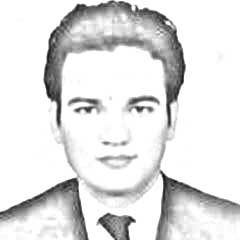The United Nations Children’s Fund (UNICEF) in its report titled as ‘Juvenile Justice System in South Asia’ noted that there are three main areas where young people come in contact with the state; those areas include health, education and circumstances leading them to courts on count of conflict with law. A very few efforts had been made across South Asia to improve those areas for children. However, there have been laws and regulations across South Asia demanding free education, necessary health services, and facilitating those youths who come in conflict with law on count of heinous and minor offences. The Constitution of Pakistan 1973 demands free education to every child ranging from 5-15-year old by virtue of Article 25 A. On the same hand, our neighboring Nation-India enacted an Act in 2009 for ensuring free and compulsory education to every Indian child. Moreover, the same sort of laws had been enacted in Nepal, and Bangladesh. In most South Asian countries most of those who had been denied necessary health services, compulsory education found to be a part of marginalized, and vulnerable communities of South Asian societies.
The report cited above also noted that those who come in conflict with law found to be a part of vulnerable segments of societies of South Asia. As laws and regulations had been enacted by almost all South Asian countries on free and compulsory education, and health on the same side these countries in light of United Nations Convention on Rights of Children (UNCRC), and UN guidelines promulgated domestic laws for safeguarding rights of every child also ensuring dignity to those who come in conflict with law with a mission of their reintegration in the society. Pakistan became a member of UNCRC in 1990, thereafter Pervez Musharraf led regime introduced Presidential Ordinance as Juvenile Justice Ordinance (JJSO) in 2000 for safeguarding juveniles those who come in conflict with law. In order to rectify shortcomings and strengthen the juvenile justice system of Pakistan Juvenile Justice System Act 2018 was notified in the official gazette in place of the JJSO of 2000.
More than three years have passed but no positive steps have been taken by the authorities for the establishment of institutions for juveniles
In recent times, Juvenile Justice System reform has received significant attention all across South Asia. This area of criminal justice system of most South Asian countries has been under surveillance by the International community and rights’ defenders.
Most countries of this region have some differentiated procedures and mechanisms for children who come in conflict with law, as yet not a single has managed developing a system ascribed for children those found to be in conflict with law distinct from adults at all stages of judicial proceedings. JJSA 2018 of Pakistan was enacted with a view of strengthening juvenile justice of Pakistan having separate courts for children standing trials, and facing criminal charges against them. In light of section 4 of JJSA 2018 separate courts ought to be established within three months of its commencement. No such separate court across Punjab has been established to date. Instead in 2018 Home Department of Punjab notified all Additional District and Sessions Judges across Pakistan notified as Juvenile Judges.
However, nothing had been done in the province Sindh. Legal Awareness Watch (LAW) had recently noted that juveniles across Punjab province housed in ordinary prisons with adult prisoners in violation of JJSA 2018. JJSA 2018 required authorities to establish observation homes, and rehabilitation centers for housing juveniles who come in conflict with law. Punjab has two borstal institutions for housing juveniles out of those one is not functional. The borstal institution of Faisalabad has not been functional since 2019 in the wake of falling of boundary wall of the institution due to thunderstorms in early 2019. During the detention period on physical remand proceedings under section 167 of Criminal Code of Procedure arrested juveniles are kept in ordinary police detention centers/police stations. However, LAW reports that under the JJSA of 2018 no funds whatsoever has been allocated by the government for purposes of legal assistance to juveniles facing criminal charges.
Section 3 of the same required that legal assistance be given to every juvenile who came in conflict with law. No such nature of funds has been allocated in Punjab and Sindh. The research activity report of LAW found that the exact age of juveniles and youthful offenders up to the age of 21-year appeared to be unknown. However, the report further noted that out of 05 prisons of Punjab 73 juveniles have been housed those facing alleged criminal charges.
JJSA 2018 when promulgated, it was viewed that juveniles would receive primary and necessary education, health within prison premises in order to ensure their peaceful integration in the society. Having them in ordinary prisons, and trying them in ordinary courts will make them desperate after their release from prison.
There is also no record that the inaugural speeches of President Arif Alvi and incumbent Prime Minister of Pakistan pledged to protect the welfare of children, and safeguard their rights across Pakistan. JJSA 2018 shall be followed and practiced in its letter and spirit making a system fit for juveniles who come in conflict with law. Rehabilitation centers, observation homes, separate juvenile courts, and juvenile justice committees all these to be notified as soon as possible.
More than three years have passed but no positive steps have been taken by the authorities for the establishment of mentioned institutions for juveniles. Having laws for protection of juveniles appeared excellent but following them in their letter and spirit will make Pakistan’s image shining across the world. Juveniles have been kept in ordinary prisons with adults in small barracks by labelling those as “juvenile center”. It is the time to dispense justice to juvenile and JJSA 2018 to be followed in its letter and spirit.
The writer is an advocate, based in Lahore
